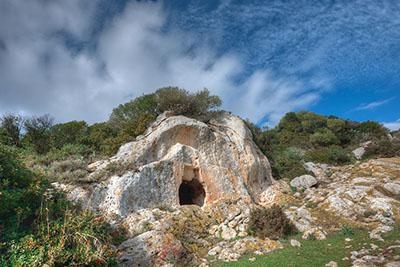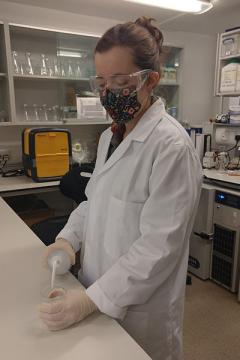Archaeology department success in the Moray Endowment Fund
The School was delighted to learn that five archaeological research projects have just been awarded funding from the University of Edinburgh Moray Endowment Fund.
The Moray Endowment Fund is intended to support original research in any discipline with an annual income of approximately £25,000, awarded via an annual competition.
Dr Manuel Fernández-Götz has received support for his ‘Uncovering the lost battle: Conflict archaeology research at Emporion (Spain)’ which will use field survey and KOCOA Military Terrain Analysis (a modern methodology used by the American military) to study the Battle of Emporion (modern Empúries, NE Spain). The battle took place in 195 BC and represented a key stage in the Roman conquest of the Iberian Peninsula. KOCOA provides an established method for analysing key elements of a battle and the influence of the terrain. While the Battle of Emporion has been described in detail by classical sources, until recently there had been virtually no archaeological research on it. The project will be carried out in collaboration with Dr Jordi Principal from the Archaeological Museum of Catalonia.

The ‘Archaeomorphology of prehistoric rock-cut tombs in Sardinia (Italy)’ project will examine long-debated issues such as the influence of geological landforms on the location, construction and use of rock-cut tombs. Dr Guillaume Robin will explore the potential of 'archaeomorphology' – an approach that focusses on the intersections between the evolution of landforms and landscapes (geomorphology) and human activities in the past (archaeology) to unveil key aspects of complex archaeological landscapes, such as the temporalities of sites (how they looked like before, during and after their use from prehistory to present day). This approach was pioneered by Professor Jean-Jacques Delannoy and Dr Stéphane Jaillet, both geologists based at the Université Savoie Mont Blanc (France), who will collaborate with Guillaume as part of this innovative project.
Elizabeth Greenberg’s ‘FRUITS and Nuts: Plant use in the Mesolithic of North-western Europe’ project is researching the contribution of plants to the diet of late hunter-gatherers of Northwestern Europe. This research involves the use of isotopic analysis of modern and archaeological plant remains to reconstruct the diet of ancient humans. The funding will allow Elizabeth, who is an MSc candidate in the department, to extend the range of modern samples in her sample.

PhD researcher Emma Smith has also received support for ‘Investigation of the relationship between diet and skeletal markers of physiological stress in medieval Croatia’. This is a pilot study to see if the collagen in the study sample are suitably preserved for analysis. It forms part of Emma’s wider research on diet, weaning, and physiological stress.
Staying in the medieval period Dr Robin Bendrey will be examining the role of squirrels in the transmission of leprosy. Leprosy was a devastating scourge of medieval Europe and until recently there has been no known zoonotic component to its transmission in this context. Robin’s project ‘Investigating the role of human-squirrel interactions in medieval leprosy: a baseline study of modern squirrel skeletons’ will study pathological and morphological variation in a large series of museum-curated modern red squirrel skeletons to produce a control dataset for the analysis of archaeological remains. Currently, there are no palaeopathological criteria for identifying leprosy in squirrel skeletons.
The School sends its warmest congratulations to the researchers and looks forwards to the project outcomes.
Dr Manuel Fernández-Götz's staff profile
Dr Guillaume Robin's staff profile
Dr Robin Bendrey's staff profile

